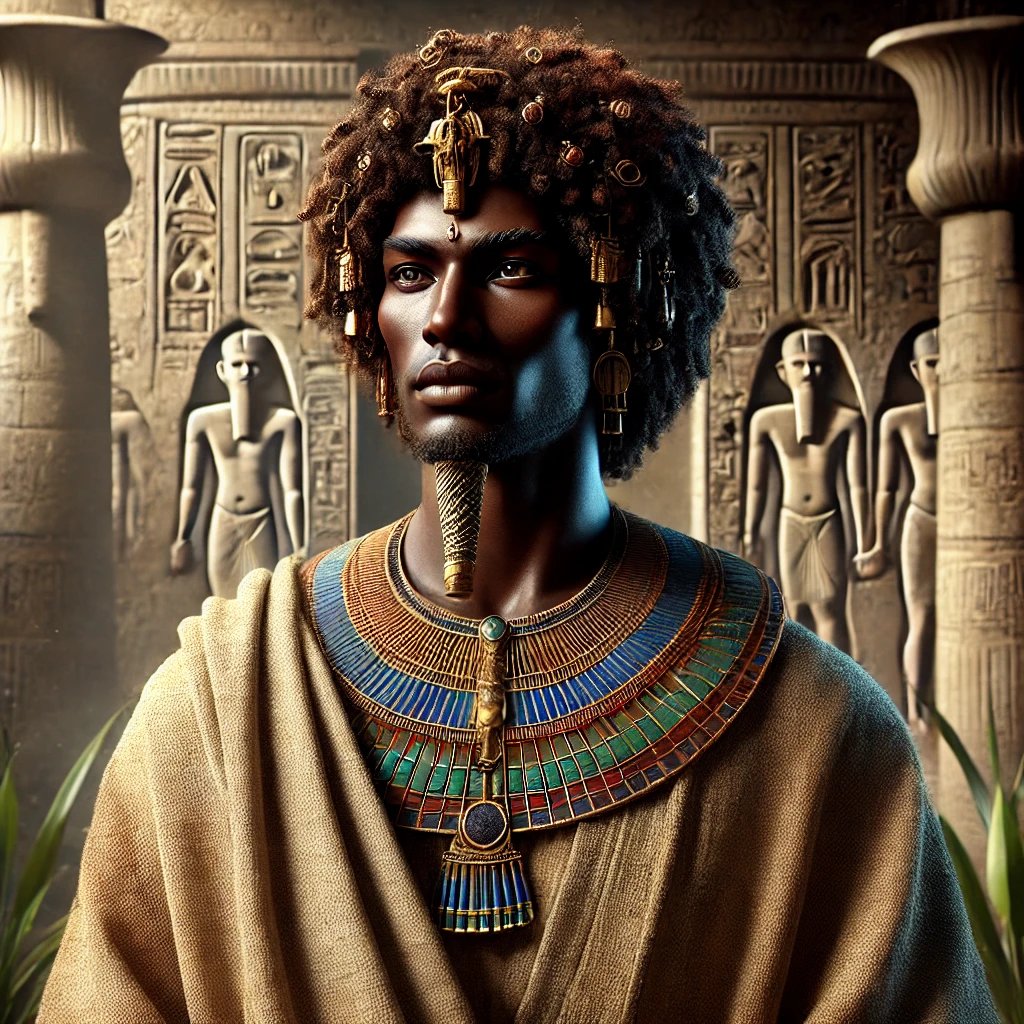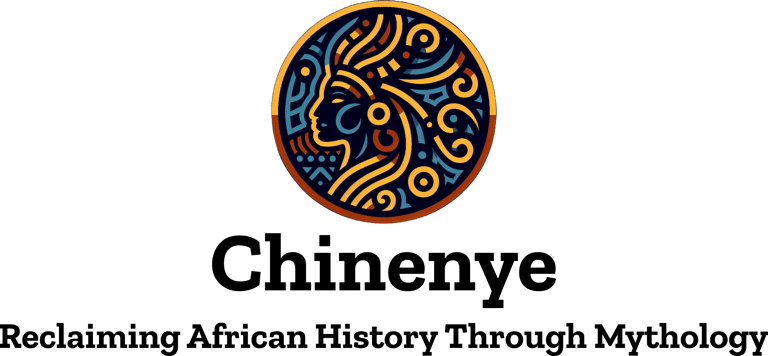The Pharaoh in the Bible Had Springy Black Hair
The Pharaoh in the Bible had springy black hair. The Black Pharaohs were the first Pharaohs too. The Pharaohs in the Bible and in the stories behind the movies all had springy Black hair. Egypt was Kemet and African. This post reclaims Biblical Egypt as Black, brilliant, and civilizationally erased.
THE CODEX OF NILE TIME
Chinenye Egbuna Ikwuemesi
7/22/20253 min read


The Pharaoh in the Bible Had Springy Black Hair
For most of my life, the Pharaoh in the Bible was a symbol, an obdurate, recalcitrant ruler who was grand, powerful, stubborn, and terrifying. But never once did I imagine he looked like me.
Even as I read the Book of Exodus and saw him face down Moses in the theatres of plagues and divine confrontation, I imagined a man who was everything but not African. Regal but not familiar. Certainly not Black. Certainly not anything like me. The image I had was somewhere between Charlton Heston’s movie The Ten Commandments and a generic Middle Eastern strongman, devoid of historical geography and, more importantly, devoid of me.
One day, the knowledge struck with the force of thunder: the Pharaoh in the Bible had springy Black hair.
He was African. He was Kemite. He was not just dark-skinned, he was my shade and texture of unapologetically African. The man who contended with Moses. The royal court that negotiated with Joseph. The kings who stood between famine and survival, between exile and empire, they were all Black. Not metaphorically, not symbolically — but visibly, verifiably and beautifully so.
A Civilizational Erasure
The deeper I looked, the clearer the pattern became. The Egypt of the Bible, the Egypt of invention, of writing, of pyramids, of astronomy, of divine kingship, was and had always been a Black civilisation. Not adjacent to Blackness. Not influenced by it. But forged in it.
What had been done to that truth was not a simple oversight. It was a global disfigurement of African History, a diabolical and intentional design and a reckless vandalism in the redrawing of maps, myths, and memories. A whole Black reality sanded down until it could pass as white, or at least acceptably “neutral.” The Pharaoh became Arab or olive-skinned, or statelessly tanned, anything but recognisably Black. And with that change came the removal of African genius from the global imagination.
This Changes Everything
When you realise the Pharaohs were Black-Black, you begin to ask different questions.
What if the world’s oldest bureaucracy was run by Africans?
Do you mean Africans invented spiritual governance and myth-based law?
What if time itself were measured by African innovation?
Does this mean that the first state to catalogue the stars, track the floods, build the cities, and debate the soul was a state run by Black people?
These are not “alternative history” questions. These are the real questions, once we have corrected for theft.
Because what the lie did was twofold: it erased the Black past and distorted the Black future. When a child grows up thinking their ancestors were always slaves, or that civilisation only arrived when the coloniser came, something in the psyche collapses. But when that same child learns that the Pharaoh in the Bible had springy Black hair, and that pyramids rose from minds like theirs, the spell is broken. Identity unshackles. Vision returns.
Why It Matters Now
I write and speak about African mythology not as folklore, but as civilisational infrastructure. Myth is how societies encode law, ethics, and identity. If you strip a people of their mythologies, you take not just their stories their compass too.
Restoring those stories is not nostalgia. It is justice.
This matters for education, governance, global Black identity, and anyone trying to rebuild trust, belonging, and purpose in the 21st century.
The Pharaoh's Blackness is not a footnote; it's a foundational truth. It repositions Africa, reframes history, and rewrites what is possible for Black futures.
The New Mandate
This work of restoration, of mythic accuracy, and of civilizational reanimation is what I do. Through the Afrodeities Codex Series, I am reconstructing the intellectual and spiritual systems of ancient Africa, including their cosmologies, technologies, and moral blueprints. Each codex reclaims a piece of our collective memory.
And if the Pharaoh in the Bible had springy Black hair, then the world has some serious rewriting to do.
About the Author
Chinenye Egbuna Ikwuemesi is a mythologist, systems-thinker, and founder of the Afrodeities Institute. Her work reclaims African mythology as civic infrastructure , estoring lost knowledge systems for education, innovation, and justice. She is currently writing The Codex of Nile Time and Egypt: The Black Republic of Kemet, and is available for speaking engagements.
Reframing African History by Reclaiming African Mythology
Restoring African mythology through innovative storytelling.
chinenye@chinenye.co.uk
© 2025. All rights reserved.
